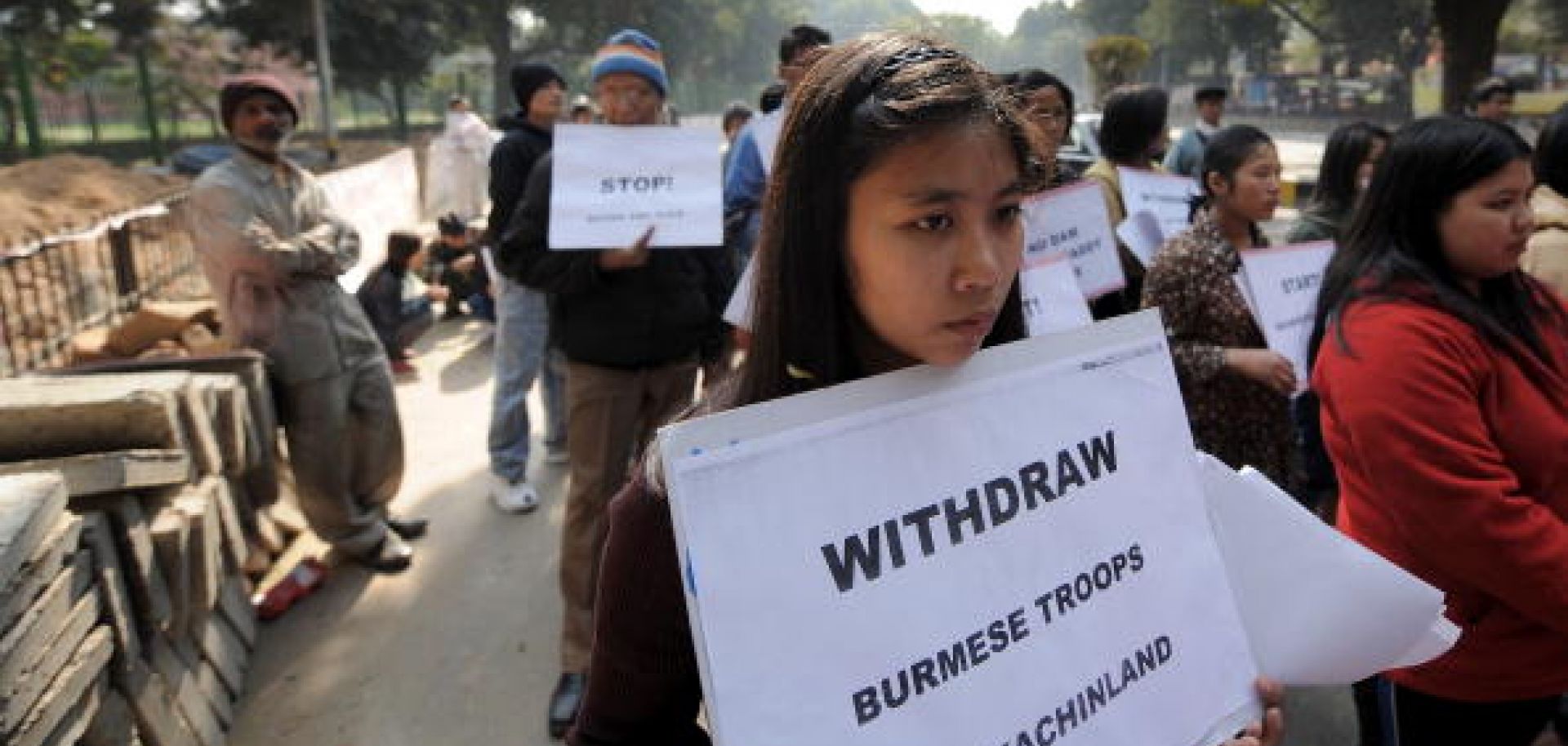ASSESSMENTS
The Kachin's Role in Myanmar-Chinese Relations
Mar 16, 2012 | 12:26 GMT

MANAN VATSYAYANA/AFP/Getty Images
Summary
The most recent peace talks between representatives of the Kachin Independence Organization (KIO) and the Myanmar central government broke down March 12. The talks, which were held in Ruili, a small border town in China's Yunnan province, were part of a plan announced by Myanmar President Thein Sein in August 2011 to enter formal peace talks with the leaders of Myanmar's 16 ethnic rebel groups. Peace negotiations are the first step toward the new civilian government's larger goal to forge ethnic unity and, in turn, attract the attention (and possibly investment) of the West.
With April 1 parliamentary elections approaching, touted by many international observers as a test for Myanmar's nascent democracy, Naypyidaw has already secured peace agreements from 12 ethnic groups. Given these apparent successes, the continued failure to reach an accord with the KIO is all the more disconcerting for the Myanmar government. Peace in Kachin state is especially important for the government not only because the KIO is the second-largest ethnic rebel force in Myanmar, but also because their position — cultural, historical and geographic — between Myanmar and China shapes those countries' relations.
Subscribe Now
SubscribeAlready have an account?
